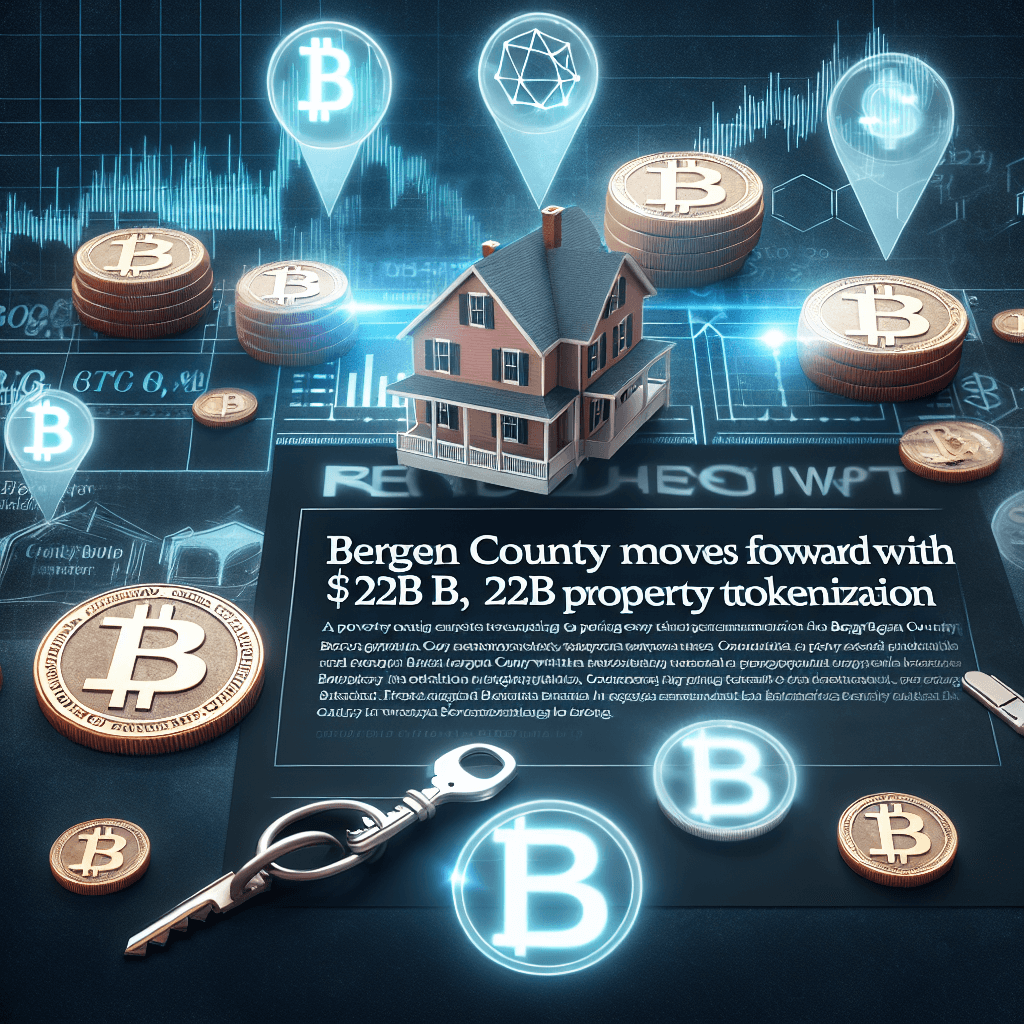Bergen County Moves Forward with $240B Property Tokenization

A landmark initiative in Bergen County, New Jersey, is set to bring $240 billion of real estate onto a public blockchain. The Bergen County Clerk’s Office has signed a five-year agreement with blockchain land-record specialist Balcony to tokenize 370,000 deeds on Avalanche. This marks the largest deed-tokenization project in US history.
Project Scope and Strategic Partners
Bergen County, the state’s most populous and located just northwest of Manhattan, oversees nearly 1 million residents and collects roughly $500 million in annual property taxes. Under the agreement signed on May 28, Balcony will mint nonfungible tokens (NFTs) representing each deed, storing metadata and chain of title on Avalanche’s C-chain.
Key collaborators:
- Balcony Technology – blockchain integration and smart-contract development
- Avalanche Foundation – public chain infrastructure providing sub-second finality
- Blizzard Fund – Avalanche-focused venture capital backing
Technical Architecture
- Smart Contract Layer: Solidity contracts on Avalanche C-chain govern deed minting, transfer, and validation functions. Each NFT holds a URI pointer to encrypted deed data stored off-chain.
- Consensus and Security: Avalanche’s Snowman consensus delivers sub-second confirmation and finality, reducing the risk of chain reorganizations that could compromise records.
- Off-Chain Storage: High-availability IPFS clusters or secure cloud buckets host scanned deed images and metadata, referenced via content hashes.
- APIs & UI: RESTful endpoints feed a web portal for county clerks, municipalities, title companies, and residents to query and verify chain of title in real time.
Regulatory and Legal Framework
Real-world asset (RWA) tokenization in the US must align with both state recording statutes and federal securities laws. Balcony worked closely with county counsel and external legal advisors to:
- Ensure tokens function as digital representations of existing deeds—not new financial instruments—thus avoiding SEC registration.
- Implement multi-party signature schemes to prevent unauthorized token burns or transfers.
- Comply with New Jersey Revised Statutes Title 46, Chapter 15, governing land records and archival requirements.
Benefits and Performance Metrics
“We’re demonstrating how secure, distributed systems can replace outdated infrastructure and deliver real-world value for governments and the public,” said Balcony CEO Dan Silverman.
Balcony projects a >90% reduction in deed processing times, slashing weeks-long workflows to hours. Immutable timestamping and cryptographic audit trails will minimize fraud, title disputes, and administrative errors.
Market Impact and Expansion Plans
Beyond Bergen County, Balcony is in active talks with Camden, Orange, and Cliffside Park to modernize their land‐record systems. Orange County alone lost nearly $1 million in revenue due to incomplete records—a gap blockchain can fill.
With 460,000 deeds already tokenized statewide, Balcony aims to expand into neighboring states by year-end, positioning Avalanche as a leading RWA platform in US public administration.
Expert Opinions on Scalability and Adoption
According to Dr. Emily Grant, a blockchain researcher at Rutgers University, “Avalanche’s modular consensus and subnets enable counties to run private or permissioned instances without sacrificing public-chain interoperability.” She adds that standardized token schemas, such as ERC-721x for RWAs, will foster cross-jurisdictional data sharing.
Future Outlook
As municipalities seek transparent and tamper-proof record keeping, tokenization projects are poised for rapid growth. Key success factors include established legal frameworks, stakeholder training, and resilient off-chain storage. Bergen County’s rollout could serve as a blueprint for nationwide adoption, unlocking efficiencies and new service models in public administration.